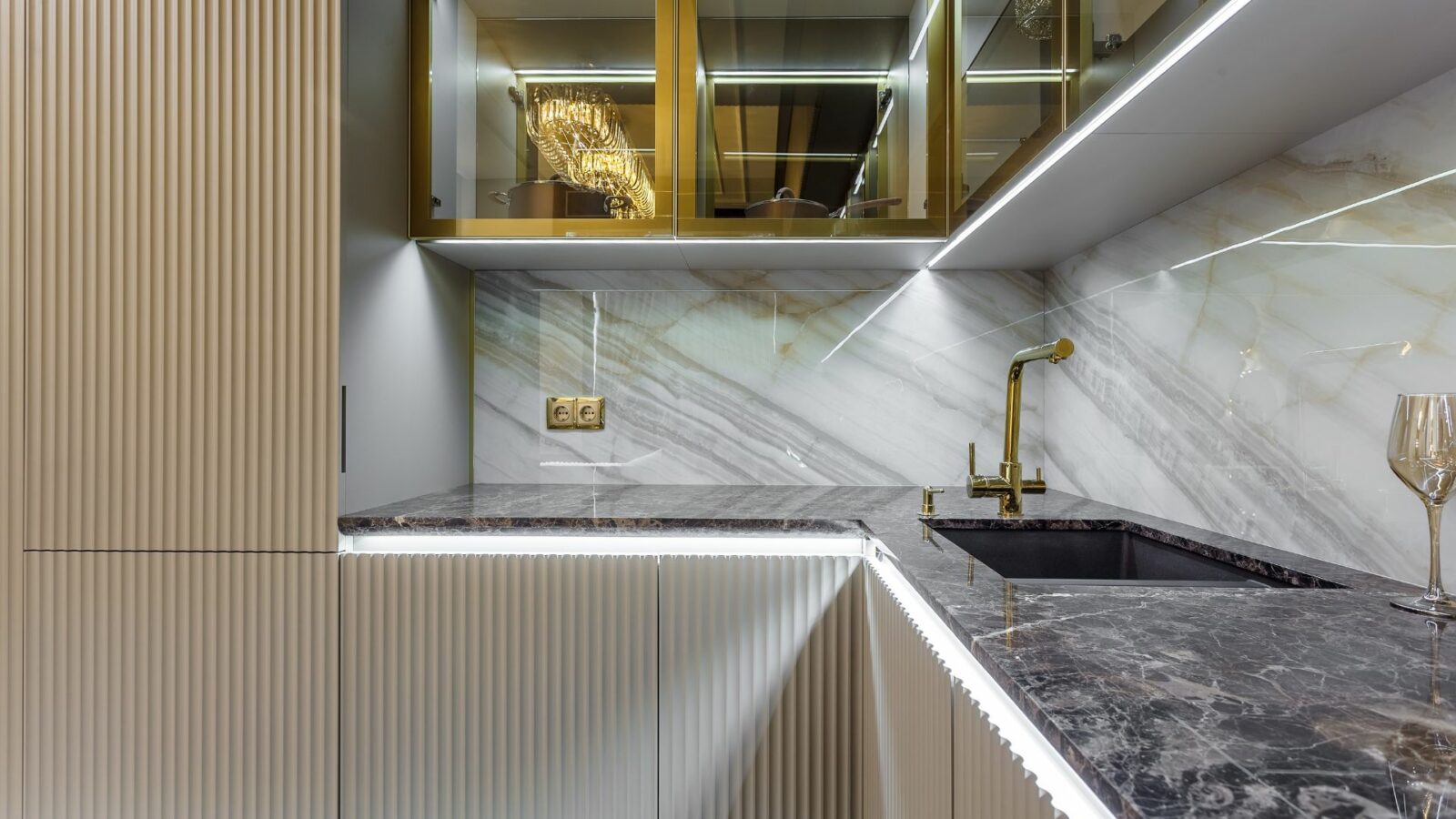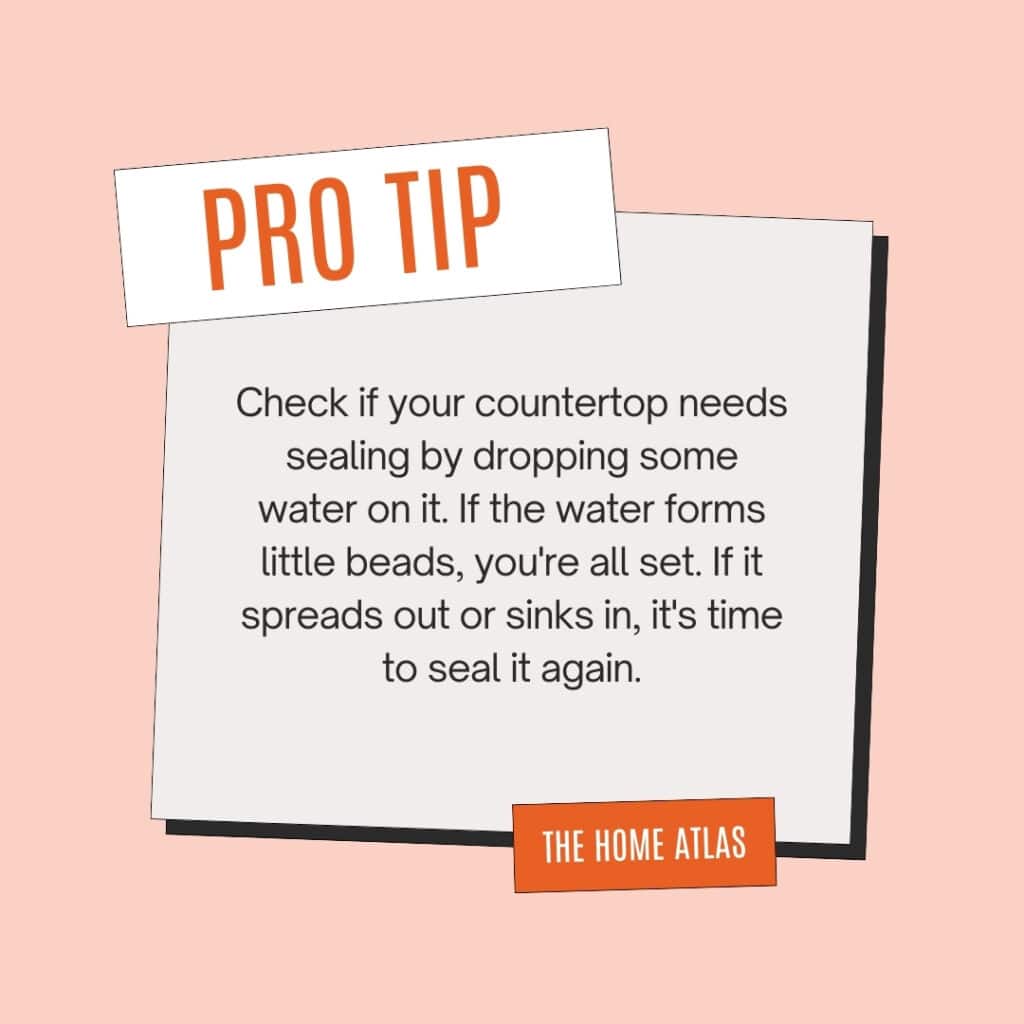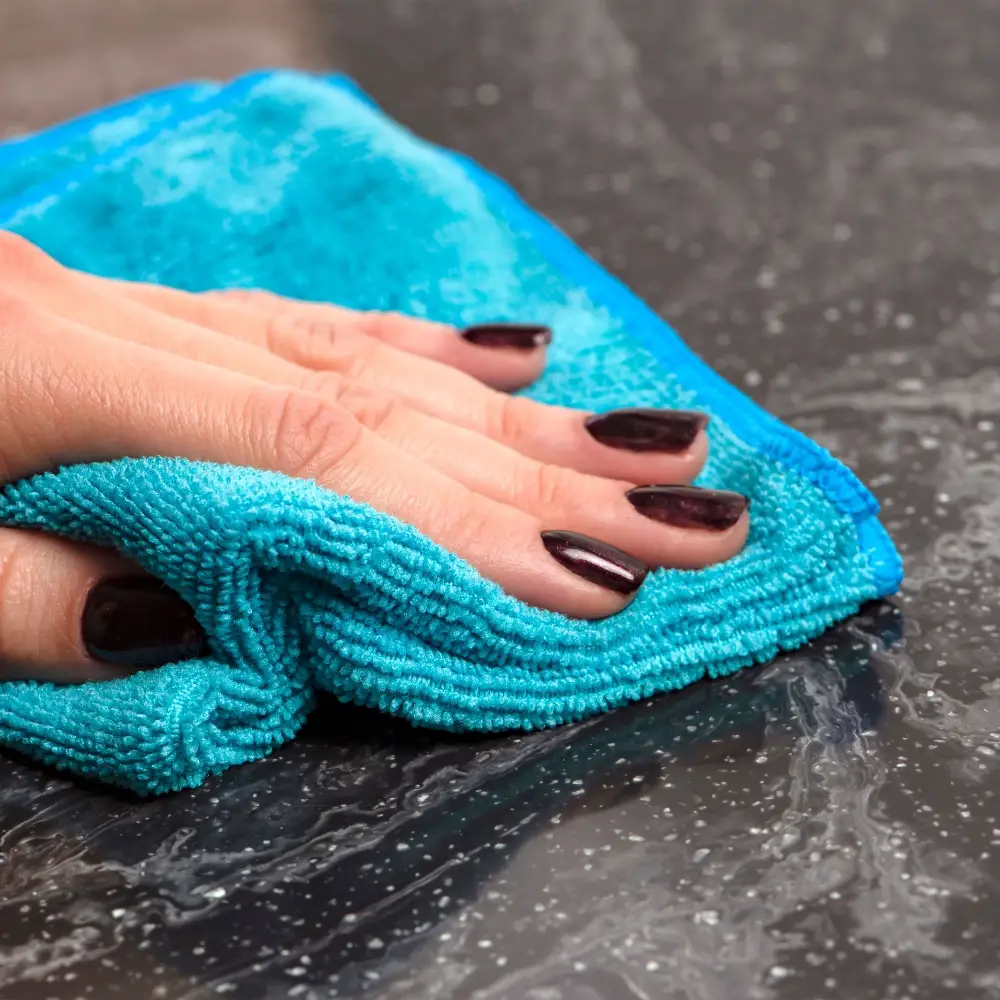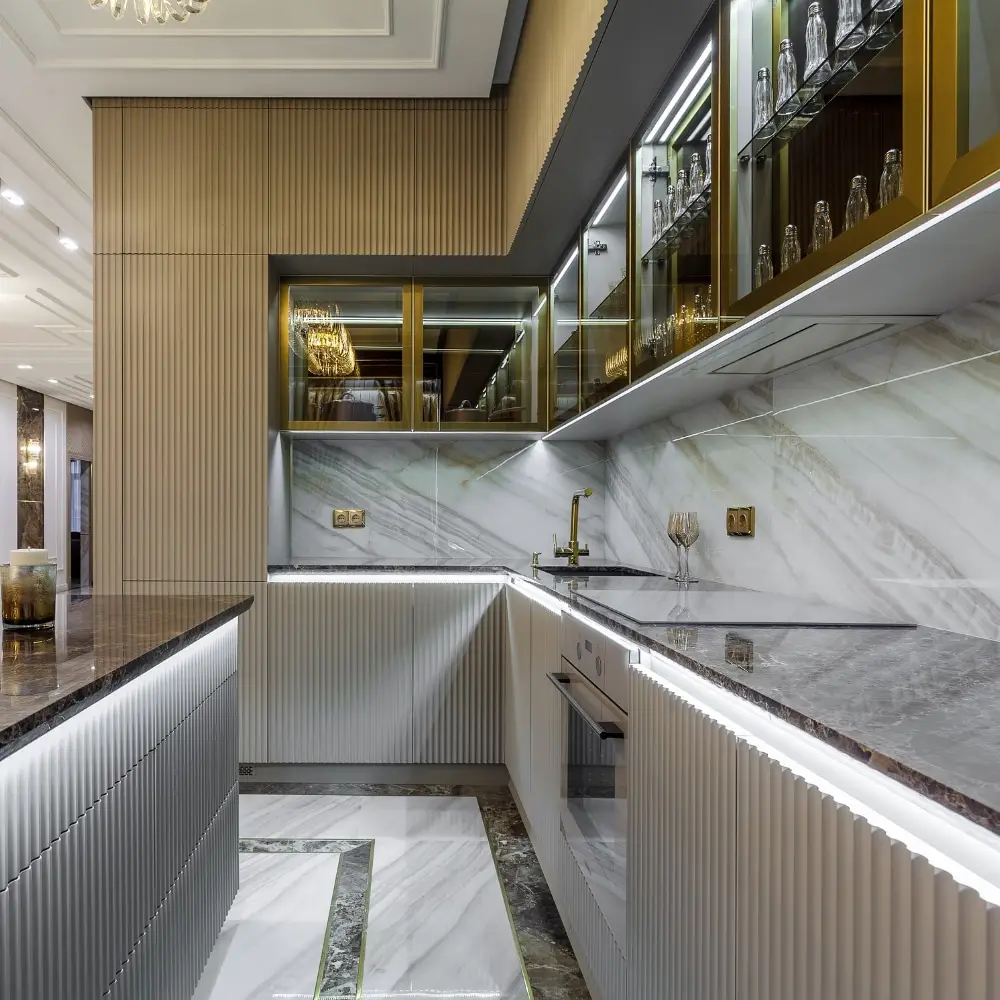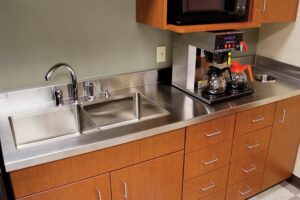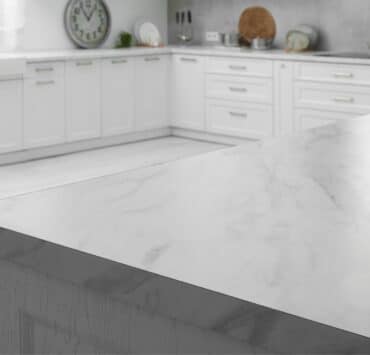Keeping your kitchen and bathroom countertops looking good and lasting longer is super important, and that’s where sealing countertops comes in. It’s all about putting a protective coat on them to keep away stains, scratches, and water damage. Whether you have granite, marble, or quartz, knowing how to seal your countertops right is key to keeping them looking great and working well.
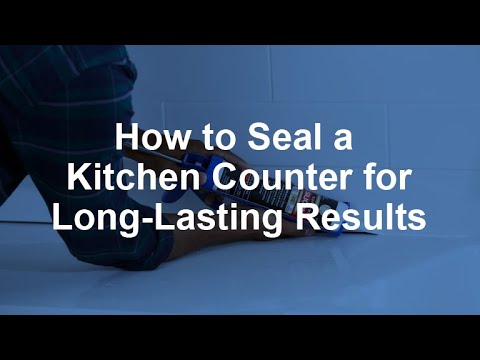
Why Seal Your Countertops?
Sealing your countertops is essential for materials like granite, marble, or dolomite, protecting them from stains, scratches, and damage. Think of a sealant as a raincoat for your countertops, preventing spills and splashes from seeping in and causing permanent marks. This barrier not only prolongs the life of your surfaces but also maintains their pristine appearance for years to come.
Countertops That Don’t Need Sealing
Not all countertops require sealing. Materials such as quartz, laminate, solid surface, and porcelain are non-porous, meaning they’re naturally resistant to stains and bacteria without the need for a protective sealant. These options offer ease and peace of mind for those who prefer low-maintenance kitchen surfaces.
How Often to Seal Those That Need It
A general rule is to seal natural stone countertops every one to two years. Perform a water drop test to gauge the need for resealing. If water soaks in, it’s time to apply a new coat.
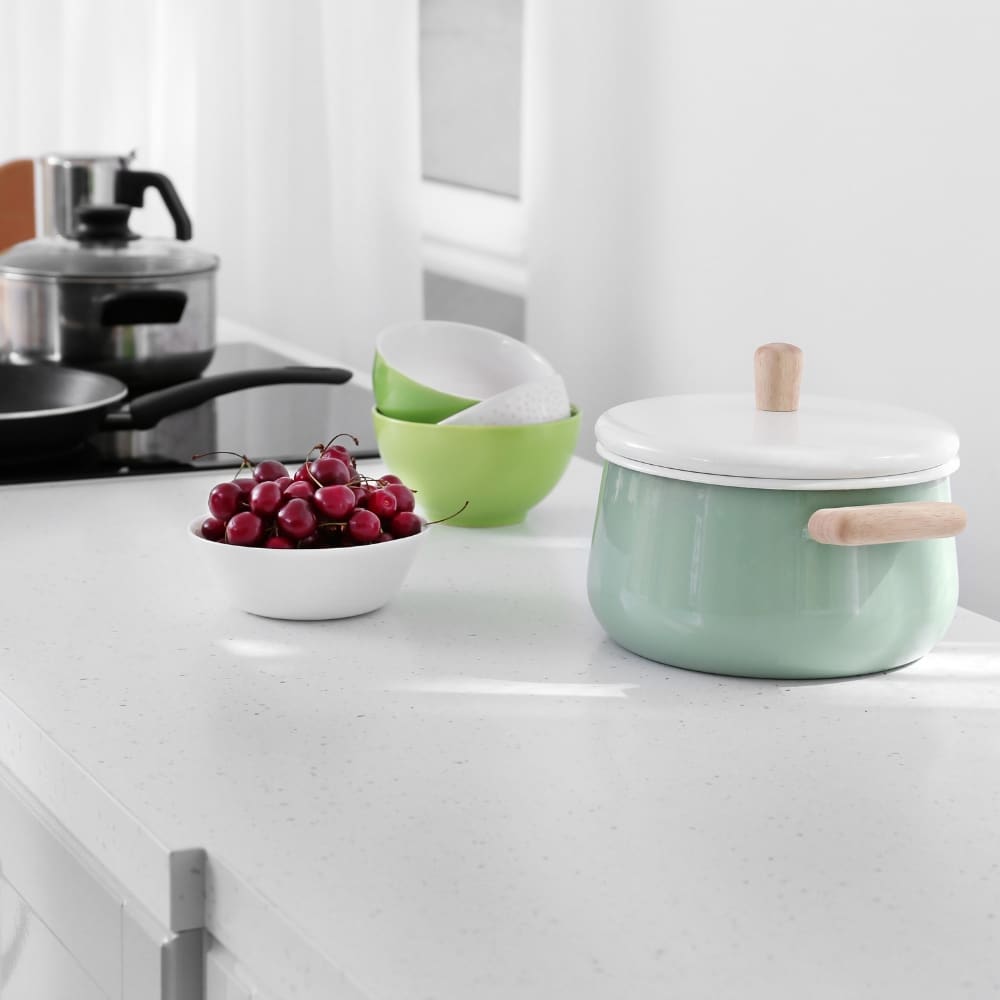
Sealing Countertops Depending on Type
Granite Countertops
These need a sealant that penetrates the stone to protect against oil and water-based stains.
Marble Countertops
Marble is more porous than granite, requiring a high-quality sealant that offers protection without affecting the stone’s breathability.
Quartz Countertops
While less porous, quartz can benefit from sealing in high-traffic areas to maintain its luster and resist stains.
Choosing the Right Sealant
For natural stone countertops, opt for a product designed to penetrate the surface, providing a strong barrier against stains without dulling the appearance.
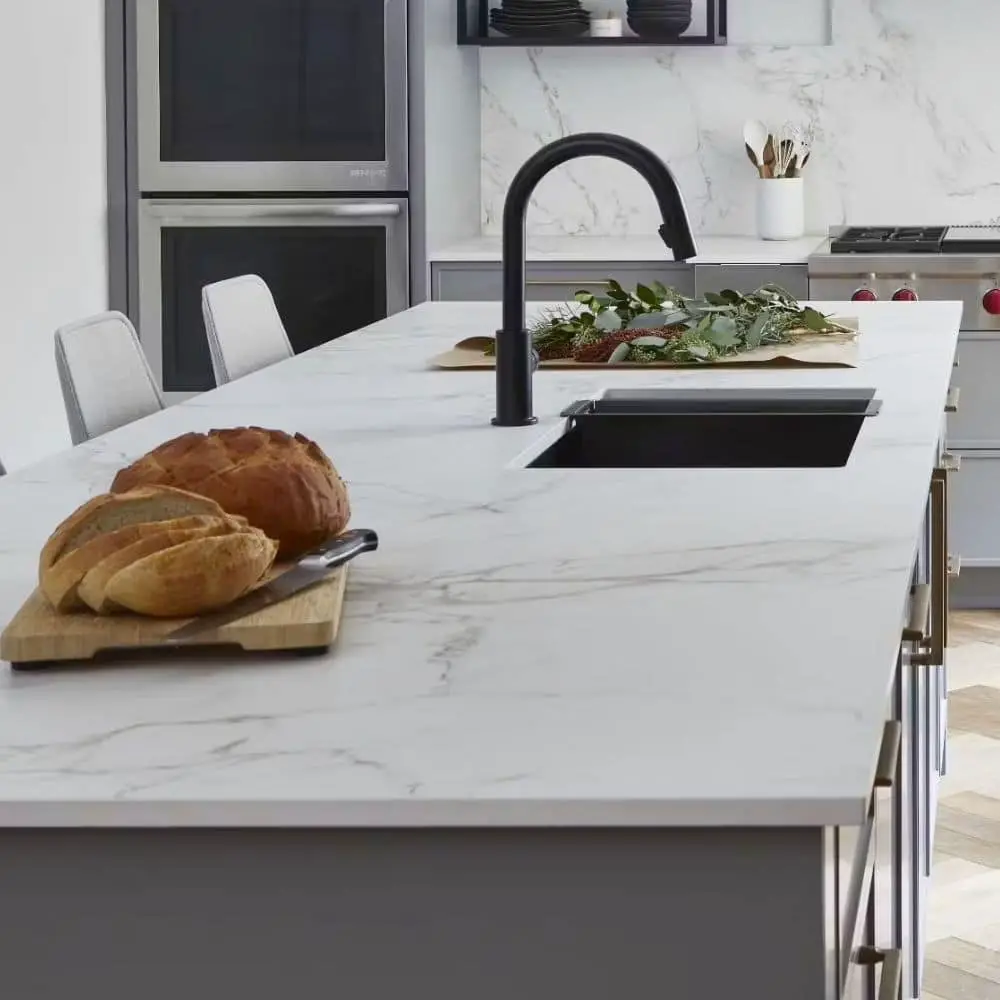
How to Seal Countertops: DIY Countertop Sealing
Sealing your countertops yourself? No sweat! Here’s a quick guide to get it done:
- Clean the Countertop: Wipe your countertop clean of any crumbs, spills, or stains.
- Dry It Out: Make sure it’s totally dry before you start sealing.
- Apply the Sealant: Follow the sealant’s instructions and spread it evenly on the surface.
- Let It Sink In: Give the sealant some time to soak into the countertop.
- Wipe Off Extra: If there’s any sealant left on the surface, gently wipe it off.
- Dry Overnight: Leave it alone to dry completely, usually overnight is good.
And there you have it—your countertop is sealed and ready to face another day!
How Much Do I Spend on a Sealant?
For DIY sealing projects, you can typically expect to spend anywhere from $10 to $50 for a bottle of sealant. Higher-end sealants, especially those designed for specific materials like granite or marble, might be on the higher end of this range.
Professional Sealing Services: What to Expect
If you’re not into DIY or have fancy countertops that need a gentle touch, going with a professional for sealing can give you that spotless finish and peace of mind. Professionals know exactly what your countertops need and how to apply the sealant perfectly, making sure it lasts.
The Cost of Hiring a Professional
Generally, you might expect to spend anywhere from $100 to $300 for a standard kitchen. This cost includes cleaning, preparing the surface, and the sealing process itself, ensuring your countertops are protected and looking their best.
Choosing professional sealing services can be a smart investment, especially for high-end materials like granite, marble, or quartz, safeguarding your countertops’ beauty and functionality for years to come.
Sealing Countertops FAQs
Do countertops need to be sealed?
Yes, especially natural stone surfaces to protect against damage.
What can I use to seal countertops?
Choose a sealant tailored to your countertop material, such as products for natural stone.
What is the best sealant for countertops?
The ideal sealant varies by material, with penetrating sealants being perfect for granite and non-toxic, water-based options for marble.
What is sealing granite countertops?
It’s the application of a protective layer to prevent stains and damage.
To Seal or Not to Seal?
Sealing countertops is an invaluable step in preserving the functionality and beauty of your surfaces. Whether opting for a DIY approach or professional services, regular sealing ensures your countertops remain vibrant and durable. Protect your investment and enhance your space with proper countertop sealing practices.
